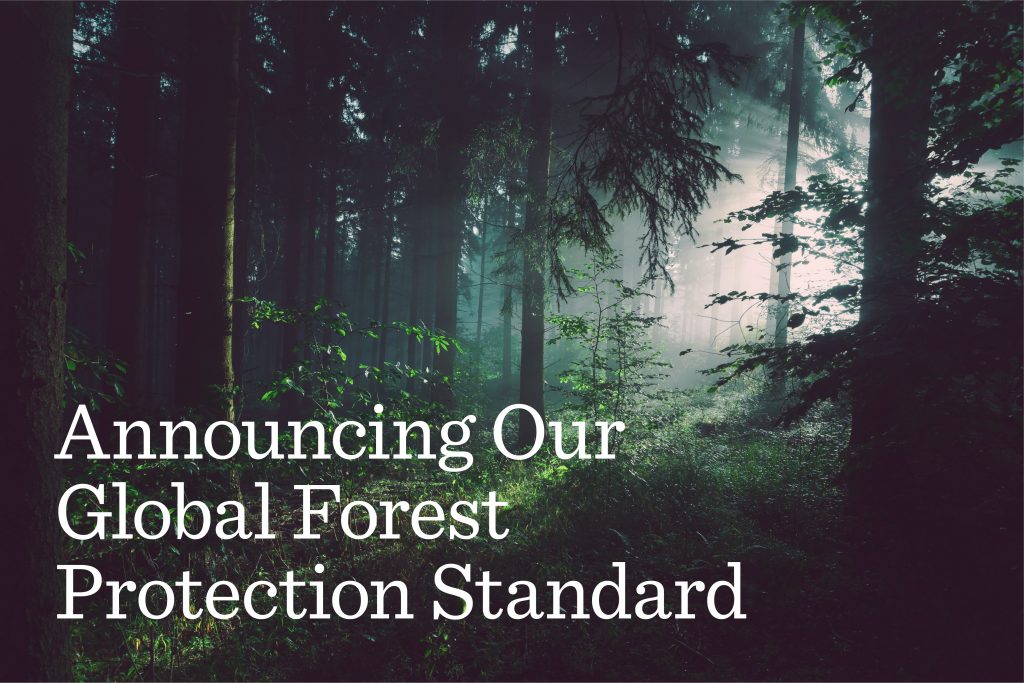Forests and natural ecosystems around the world provide many benefits – natural habitats for a variety of plants and animals, climate protection, air and water quality, and even serving as a source of livelihood and income for people living in and around forest areas. Unfortunately, deforestation is a global issue that can have a negative impact on our environment.
There are many different factors that can contribute to deforestation including wildfires, expansion of agriculture, and construction of infrastructures.
At Tyson Foods, protecting forest resources aligns with our purpose – raising the world’s expectations for how much good food can do. That’s why today, we announced our Forest Protection Standard which is focused on reducing deforestation in our global supply chain of four commodities – cattle and beef; soy; palm oil; and pulp, paper and packaging.
Earlier this year, we partnered with Proforest to conduct a deforestation risk assessment to help determine how much of our company’s global footprint is associated with deforestation. The assessment concluded nearly 94 percent of our land footprint was at no to low risk of being associated with deforestation.
So what about the remaining six percent? We’re working to address that by developing the Forest Protection Standard to ensure Tyson Foods is continuing to target the reduction of deforestation risk throughout our global supply chain. The standard maps out our plans to proactively address the areas at risk. Commodity Action Plans are also being developed to outline the work that needs to be done in each commodity area to move our company towards becoming deforestation free.
Through our Core Values, we strive to create value for our shareholders, customers, communities and team members, while serving as a steward of the animals, land and environment entrusted to us. Assessing our deforestation risk across our global supply chain not only supports our Core Values but is also one of the ways we have publicly committing to advancing the principles of the UN Global Compact as well as the UN Sustainable Development Goals (SDGs).
We recognize the need and importance to protect forests and biodiversity, reduce our carbon footprint, and conserve natural resources to help sustainably feed the world. For more information, view our 2019 sustainability report.

